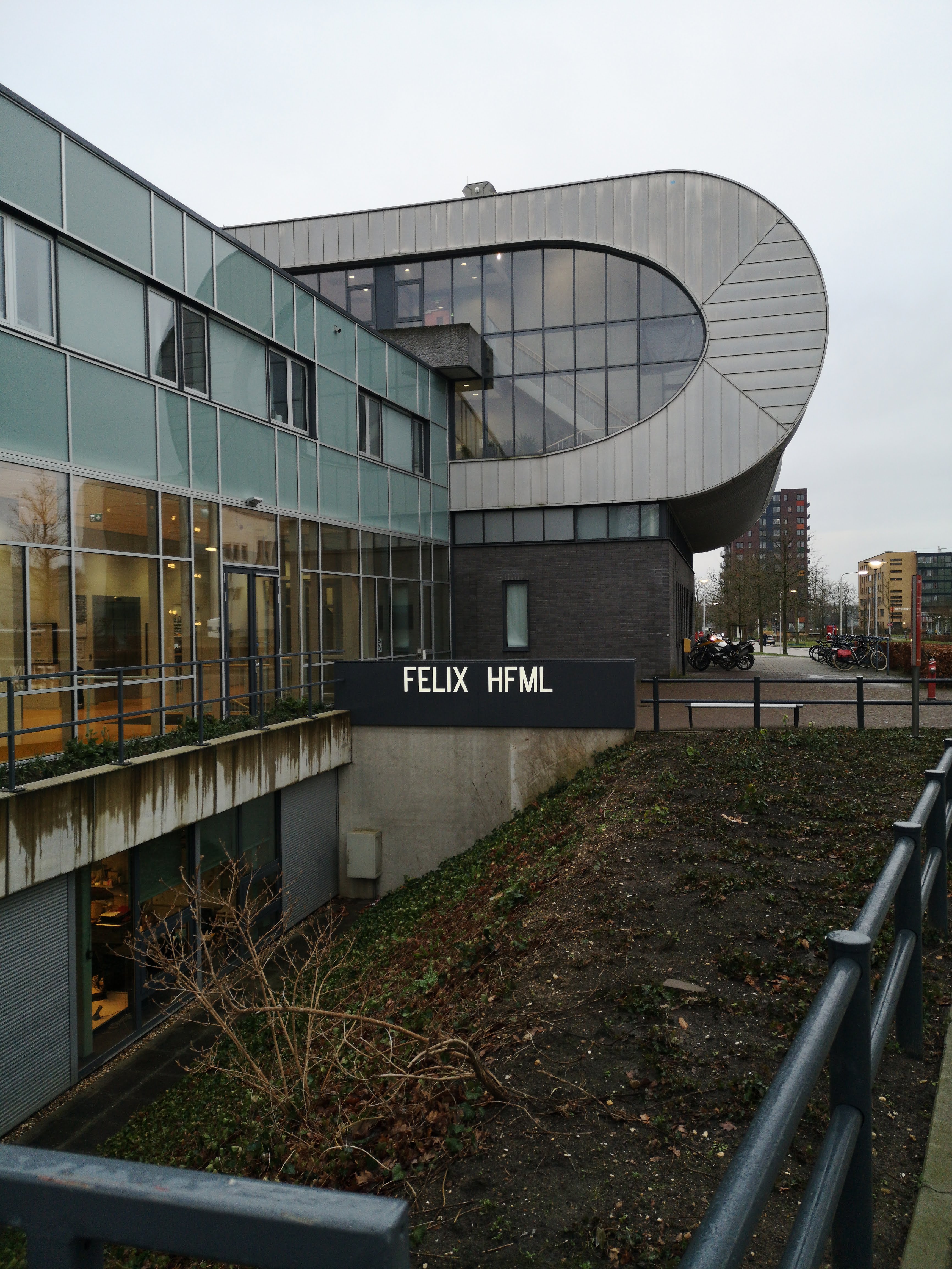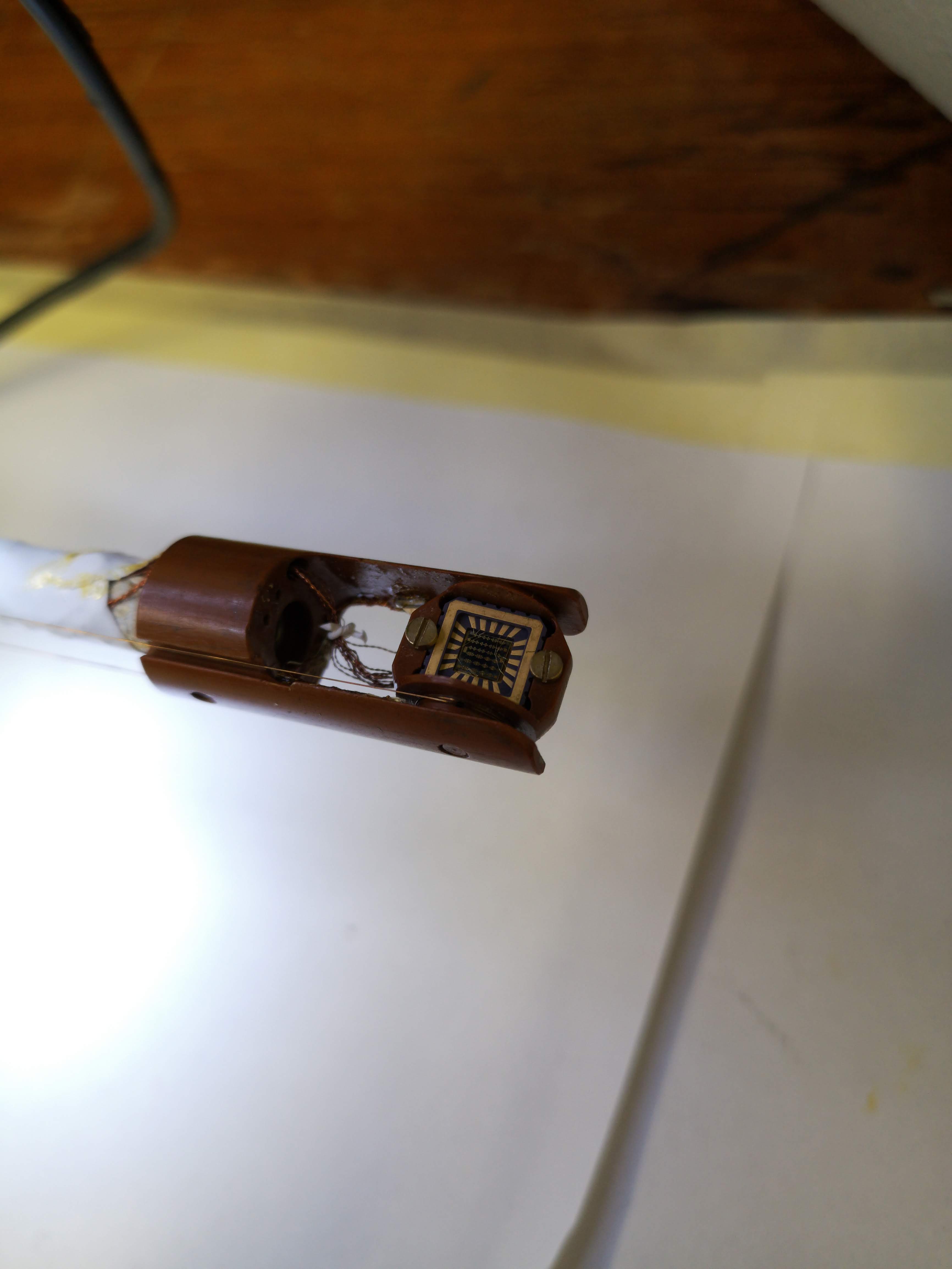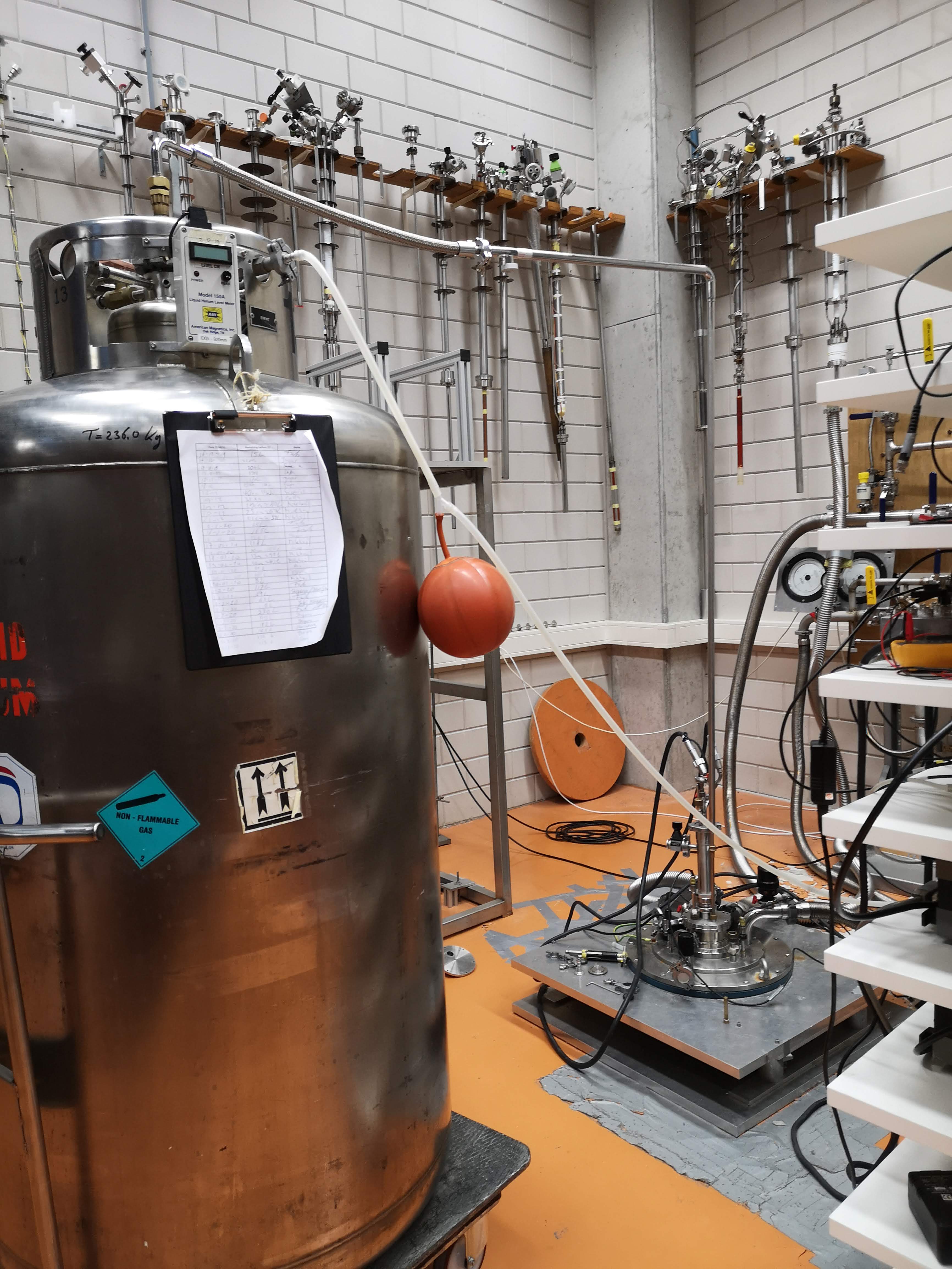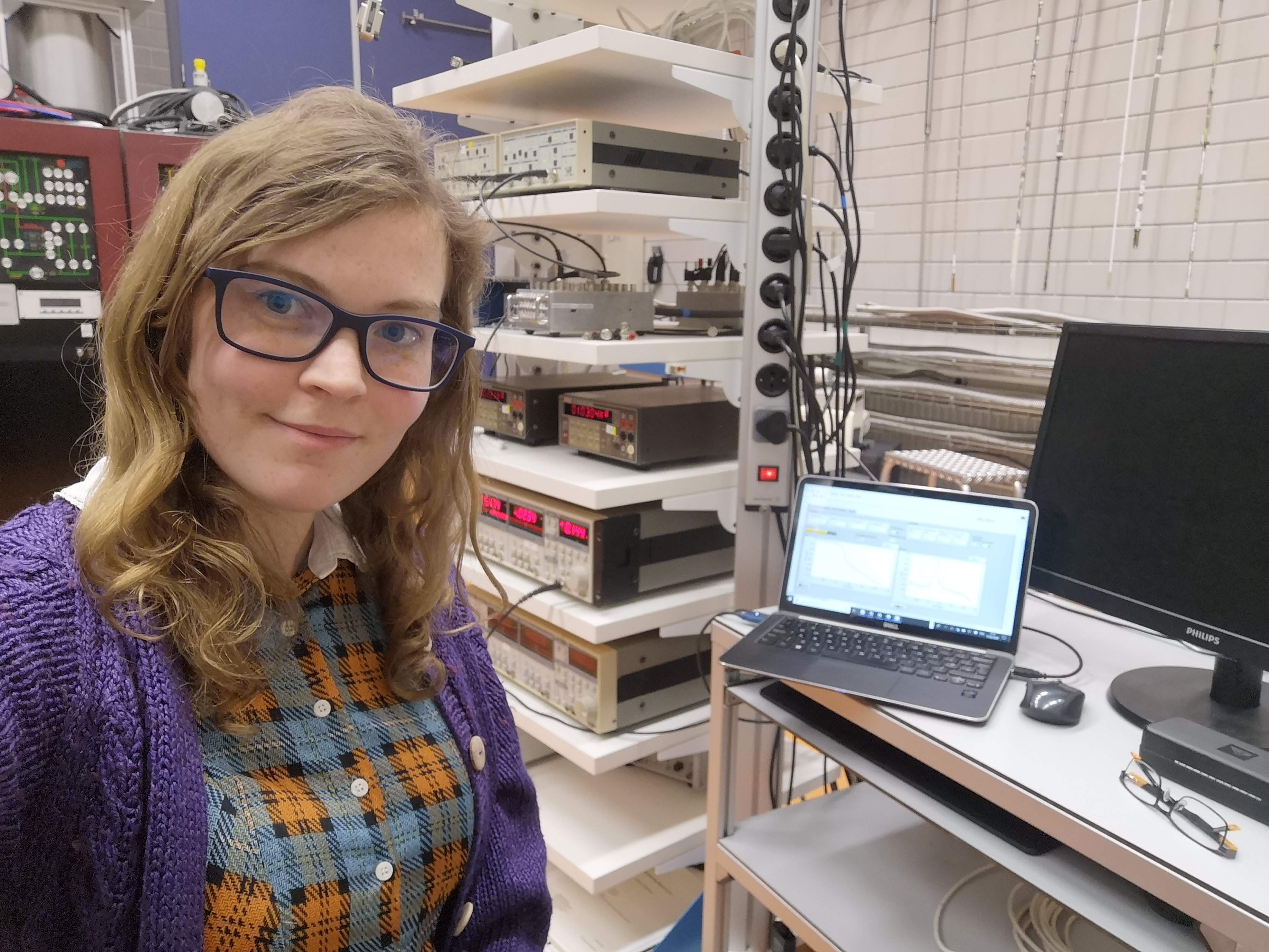Research is a highly collaborative venture and being a PhD student is one of the first times you get a taste of this. Collaboration occurs within groups, departments, faculty, nationally, and internationally. When you start a PhD, you’ll find yourself collaborating with groups from other universities or even industry partners.
Local and national collaboration
I regularly work with colleagues in different departments at Surrey (usually electronic engineering) as well as those in other universities in the UK such as Cardiff, Warwick, and Sheffield.
This is in part because different universities have different facilities and equipment but also because we can discuss our work with each other to get a different perspective on it. I find that talking with researchers outside our group here at Surrey forces me to communicate my work clearly which improves my understanding of what I’m doing.
International collaboration

The FELIX/HFML Facility 
My device all the way from Surrey mounted and ready to go into the magnet 
Filling the HFML magnet with liquid helium
Last year, I had the chance to travel to the Netherlands to work with some of our international partners at the High Magnetic Field laboratory (HFML) in Nijmegen. This facility houses several of the world’s highest static magnetic field systems.
My research involves studying materials in high magnetic fields in order to understand how electrons and their spin behave. At Surrey, we have a wonderful superconducting magnet that I use regularly for measurements (up to 7T), but for this experiment, I needed something that could produce magnetic fields up to 15T.
Luckily our research group has a long-standing relationship with HFML (and their neighbouring lab, Free-Electron Lasers for Infrared eXperiments or FELIX). So, we put in a proposal for some magnet time on one of their smaller magnet systems. A few months later, I was on a plane to the Netherlands with my supervisor to use their system.
Travelling abroad to work with collaborators wasn’t something I was expecting to do during my PhD, but I was very excited about it. We had three days of magnet time so I knew it would be an intense few days. Beforehand, we’d planned out what we wanted to do each day, ensuring that we had some wiggle room for when things inevitably didn’t go to plan!
The first day was all about meeting people and getting our experiment set up. I was quite nervous about using a different magnet system, but it turned out I could easily transfer my skills with the magnet at Surrey to the one at HFML.
At the end of our time there, I had some lovely new data to take home and analyse as well as some results I didn’t quite understand at the time. Since then, we have been writing up the experiment as a scientific paper which has meant that the collaboration has continued in the analysis and writing up stages of the experiment.

Working with people from around the world doesn’t just mean travelling there in person. You may find that your supervisor or colleagues already have relationships with research groups elsewhere. This is something to be embraced as they may have unique perspectives on your work that you may not otherwise encounter.
If you have the chance to collaborate with international partners during your PhD, I would definitely recommend it. Travelling, meeting, and talking with others in your field is a great opportunity to learn and grow as a researcher.
